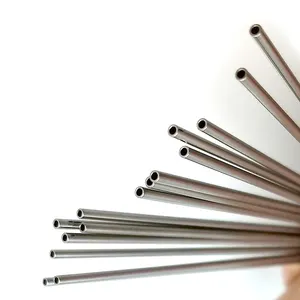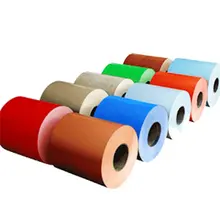Understanding 2-Inch Stainless Steel Pipes
Comprising a fusion of iron, carbon, and a substantial proportion of chromium, stainless steel pipes are metallic conduits favored across diverse sectors for their robustness and anti-corrosive properties. These conduits are indispensable in systems necessitating the movement of liquids and gases, such as plumbing, petrochemical, and food processing networks. The 2-inch diameter variant is widely utilized, adept at transporting a plethora of substances in both commercial and industrial environments.
The fabrication of stainless steel pipes encompasses a series of procedures, from melting to forming and welding, with occasional additional steps like annealing to bolster their attributes. Available in a spectrum of grades and formulations, each is engineered to deliver distinct advantages for varied applications. Certain grades are tailored for superior corrosion resistance, while others excel in maintaining strength at elevated temperatures. The adaptability of stainless steel pipes renders them ideal for use in settings as sterile as medical facilities or as demanding as heavy industrial plants.
At their essence, stainless steel pipes facilitate the conveyance of fluids or gases, with interiors that can be polished to enhance flow dynamics and exteriors finished in brushed or matte textures for better handling and aesthetics. Their design ethos prioritizes endurance and consistent performance, even when subjected to extreme pressures and temperatures, positioning them as a steadfast option for transport systems in challenging conditions.
Diverse Varieties of 2-Inch Stainless Steel Pipes
The realm of stainless steel pipes is extensive and multifaceted, with each variant catering to specific roles within numerous industries. Below is a synopsis of some prevalent types:
-
Seamless Stainless Steel Pipe: Crafted through the extrusion of heated metal, this type boasts a uniform material flow. It is preferred in high-pressure scenarios due to its ability to be produced in larger sizes with robust walls, ensuring strength and corrosion resistance.
-
Welded Stainless Steel Pipe: These pipes are formed by curving stainless steel around a mandrel and fusing the ends. Generally more cost-effective than their seamless counterparts, they are commonly employed where pipes traverse walls or subterranean paths.
-
Electric Resistance Welded (ERW) Stainless Steel Pipe: ERW pipes are created by electrically welding the steel's edges, resulting in a bond stronger than that of standard welded pipes. They are frequently utilized in construction for structural frameworks or plumbing systems.
-
Polished Stainless Steel Pipe: Sporting a mirror-like sheen, these pipes offer an additional layer of defense against corrosion and are often selected for architectural applications or when aesthetics are paramount.
-
Pressurized Stainless Steel Pipe: Engineered for high-pressure applications, these pipes feature thicker walls to safely contain fluids under substantial pressure, such as in industrial processes or in rigorous usage scenarios.
Each pipe type is customized for particular applications, considering its material properties, manufacturing technique, and intended installation environment.
Selecting the Appropriate 2-Inch Stainless Steel Pipe
For enterprises demanding high resilience and corrosion resistance, selecting the appropriate stainless steel pipe is crucial. When choosing a pipe for industrial or construction projects on Alibaba.com, buyers should weigh several factors:
-
Grade Suitability: The stainless steel grade determines its corrosion and heat resistance as well as its structural integrity. Different environments necessitate specific grades; for instance, 304 or 304L is widely used for general purposes, whereas 310S is suitable for high-temperature environments.
-
Standard Compliance: It is essential that the pipe adheres to pertinent industry standards such as JIS, GB, or EN, which reflect the steel's quality and specifications.
-
Size and Schedule: The pipe's diameter should align with the system's specifications. Additionally, the schedule, indicating wall thickness, is crucial for its capacity to handle pressure.
-
Application-Specific Features: For niche industries or systems, opt for pipes with specialized surface finishes like polished or color-coated, if available. Also, consider any additional processing services like cutting or welding that suppliers on Alibaba.com can provide.
By meticulously assessing these factors against their unique requirements in terms of quality, volume, and application, businesses can make well-informed choices when procuring stainless steel pipes through B2B platforms like Alibaba.com.
Exploring 2-Inch Stainless Steel Pipes on Alibaba.com
Alibaba.com serves as an international nexus, linking buyers with an expansive array of suppliers that offer stainless steel pipes in diverse grades and specifications. With over twenty years of experience in B2B facilitation, Alibaba.com has refined the procurement of industrial materials from trusted global manufacturers. The platform presents a broad selection of stainless steel pipe options, ensuring that project requirements are met without compromising on quality or availability.
Whether for rigorous industrial use in the 300 series or essential commercial tasks in the 200 series, Alibaba.com addresses a wide array of needs while guaranteeing procurement convenience through features like mobile purchasing and multilingual communication. The platform's Trade Assurance program further bolsters buyer confidence by safeguarding payments until delivery confirmation.
For entities in search of bulk quantities or bespoke solutions, Alibaba.com provides access to suppliers capable of meeting both demands. Whether the need is for high-pressure pipes in hydraulic systems or robust options for structural endeavors, Alibaba.com's comprehensive service streamlines international commerce, maintaining high standards of quality and dependability without the constraints of geography.
Frequently Asked Questions About 2-Inch Stainless Steel Pipes
What are the primary applications of stainless steel pipes?
Stainless steel pipes are extensively utilized in a variety of industrial contexts, including petroleum, oil and gas, water treatment, chemical production, food and beverage processing, pharmaceuticals, and marine engineering, owing to their durability and corrosion resistance.
How can I identify the most suitable grade of stainless steel pipe for my project?
Choosing the correct stainless steel pipe grade hinges on the specific environmental challenges it will encounter, the necessary strength and corrosion resistance, and adherence to any pertinent industry standards or regulations.
What processing services are applicable to stainless steel pipes?
Stainless steel pipes can be subjected to numerous processing services such as cutting, punching, molding, and welding to accommodate the precise demands of a project.
Should I be cognizant of different standards for stainless steel pipes?
Indeed, there are multiple standards like ASTM, JIS, GB, DIN, BS, and EN that delineate the specifications for stainless steel pipes. It is imperative to select a standard that meets the requirements of your project.
Is customization available for stainless steel pipes to match my project's specifications?
Many suppliers offer customization options for stainless steel pipes, including variations in length, wall thickness, grades, surface finishes, and additional features such as welding lines or insulation.
What is the significance of the material grade in stainless steel pipes?
The material grade of a stainless steel pipe signifies its elemental composition, including constituents like nickel and molybdenum, which influence the pipe's characteristics such as strength, corrosion resistance, and environmental suitability.
How does the alloy content impact the properties of stainless steel pipes?
The alloy content in stainless steel pipes can enhance attributes like tensile strength, corrosion resistance, and high-temperature performance. It is crucial to select an alloy that meets the performance criteria of your project.
What processing options for stainless steel pipes can I request from suppliers?
Suppliers on Alibaba.com provide a range of processing options, including cutting, punching, molding, and welding, to meet specific design requirements for your stainless steel pipes.
Are color variations available for stainless steel pipes?
While the intrinsic silver hue of stainless steel pipes is due to their composition, some suppliers may offer additional colors or coatings for aesthetic enhancement or extra corrosion protection.
How do I ensure the purchase of high-quality stainless steel pipes?
To guarantee high-quality acquisitions, seek suppliers with positive ratings and reviews on Alibaba.com, consider using services like Trade Assurance for transaction security, and when possible, request samples or product certifications.
What distinguishes seamless from welded stainless steel pipes?
Seamless stainless steel pipes are advantageous in scenarios where high pressure and robustness are essential. Welded pipes, on the other hand, provide more consistency in wall thickness and can be more economical for certain uses.
Can I source both alloy and non-alloy stainless steel pipes through Alibaba.com?
Alibaba.com offers an assortment of both alloy and non-alloy stainless steel pipes. Alloy pipes contain additional elements that confer improved properties, while non-alloy pipes are composed solely of stainless steel.
How should I select among different surface finishes for stainless steel pipes?
Select a surface finish that aligns with the demands of the application. For instance, a polished finish is optimal for scenarios requiring stringent hygiene and enhanced corrosion resistance.
What should be considered when choosing size specifications for a stainless steel pipe?
Account for the flow rate and pressure demands of your system. The internal diameter, length, and wall thickness should be selected based on these considerations to ensure peak performance and durability.

































 浙公网安备 33010002000092号
浙公网安备 33010002000092号 浙B2-20120091-4
浙B2-20120091-4